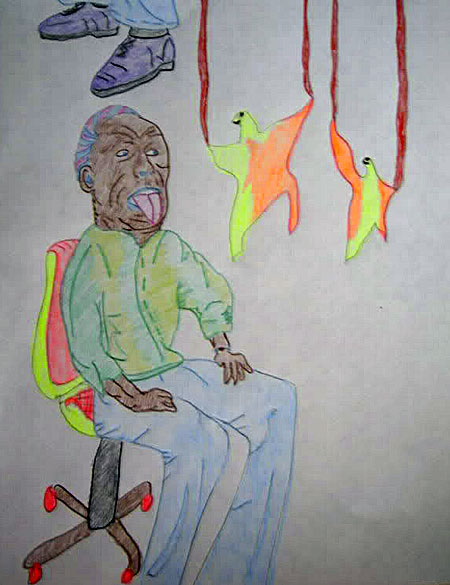A fave band, Neg-Fi, has a web page where you can stream and/or buy their tunes. Check it out.
What I wrote in '05 still adheres for the '10s:
In the '50s, a time of postwar optimism and faith in science, there was Hi-Fi. In the '90s, an era of slackers and diminished expectations, there was Lo-Fi. In the '00s, a time of neanderthal government and outright contempt for the arts, there is Neg-Fi.



